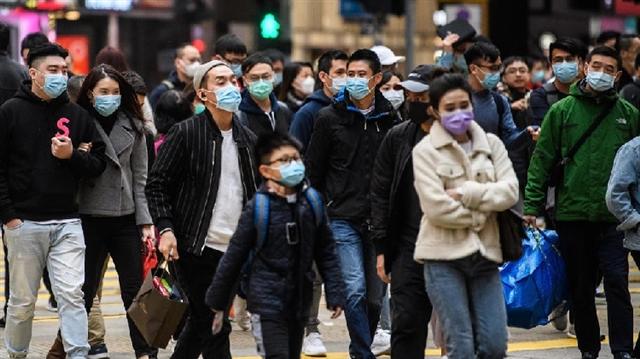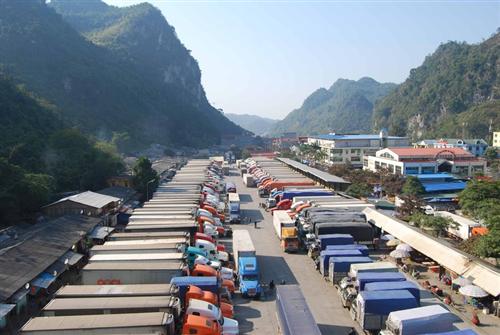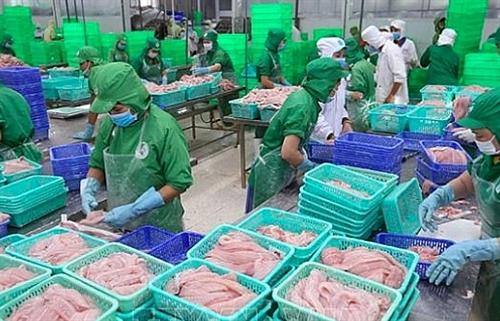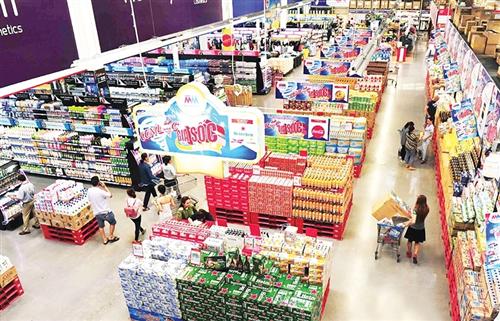Global epidemic a blow to regional supply chains
Global epidemic a blow to regional supply chains
The recent coronavirus outbreak has affected economies throughout the world, disrupting supply chains in the region, including in Vietnam.

|
Hamza Harti, general director of FM Logistic Vietnam, said that the epidemic’s outbreak on the global economy is forecasted to lower GDP by 0.2-0.3 per cent.
Vietnam’s economy will definitely be affected to a certain level, Harti said, and its supply chains, especially those from China to Vietnam, will be disrupted for some time until Chinese economic activity returns to normal which may take between two and six months.
“Inbound supply chains will suffer the most, in my opinion. Many Vietnamese companies rely on Chinese suppliers to secure their spare parts, materials, or other supplies and some are already witnessing long delays to receive their expected supplies as most Chinese factories have not opened again after the Lunar New Year,” he added.
According to statistics from the General Department of Vietnam Customs (GDVC), Vietnam’s bilateral trade with China in January fell 25.8 per cent from December last year to $8.29 billion. Specifically, exports reached $2.75 billion, down 35.3 per cent on-month, and imports decreased to $5.54 billion, down 20 per cent.
The decline in trade activities was due to the Lunar New Year celebrations and the coronavirus fears.
Economist Linda Liu from Maybank Kim Eng told VIR that the recent Wuhan coronavirus outbreak has indeed cast a shadow on the prospects of regional manufacturing recovery and logistics activities, at a time when the US-China trade tensions’ effects were just easing.
“Vietnamese export-related manufacturing and logistics activities will likely come under pressure in the short term, especially with the tightening restrictions on the cross-border movement of Chinese people and workers. However, with quick policy responses from China’s and other governments, we think this could merely be a short-term issue,” said Liu.
The latest report by Bao Viet Securities (BVS) pointed out that Vietnam’s service sector is expected to be hit the hardest by the epidemic during the first quarter of 2020, especially transportation, accommodation, tourism, retail sales, catering, and entertainment. These sectors that were directly affected by the coronavirus accounted for 17.3 per cent of Vietnam’s total GDP last year.
In industry and construction, disruptions in the global supply chain resulting from the outbreak will possibly affect the import of commodities used as input materials for production in Vietnam.
According to the GDVC, Vietnam’s total import-export value with China accounted for about 30 per cent of the former’s total in 2019, of which exports to China accounted for 24 per cent while imports from this market were 38.7 per cent.
On that basis, the outbreak could affect the production of Vietnam’s key export products that heavily depend on imported materials, such as cell phones and electronic components, computers, textile and footwear, among others.
With the government’s drastic efforts, BVS expected that the spread of the coronavirus in Vietnam will be under control. If so, BVS forecasts that GDP will grow by about 6.5 per cent in the first quarter of 2020, up to 0.4 per cent less than the same period in 2019, before it gradually recovers in the second quarter of 2020.
However, with the complicated and dangerous nature of the epidemic, it is possible that the Vietnamese economy will remain negative impacted until mid-2020. Although the country will face challenges due to the current health emergency, experts remain upbeat about the prospects of Vietnam’s logistics and supply chain industry.
Harti of FM Logistic said that the industry is expected to stay very dynamic in 2020 as Vietnam’s GDP is forecast to grow by 6.6 per cent. Domestic consumption is increasing rapidly and e-commerce continues to grow at a very fast pace, in addition.
“This will significantly increase the pressure on logistics infrastructure, whether for import and export logistics such as ports and airports or for domestic supply chains such as warehouses and distribution centres,” Harti explained.
On the same note, Liu of Maybank Kim Eng said that overall, the industry should stay relatively resilient and only see a small impact from the coronavirus outbreak for the year.
Foreign manufacturers relying on Chinese workers or with large exposure to the Chinese market could experience similar short-term impacts on their production.
“Given the fast-evolving circumstances, there could be risks of secondary impacts on Vietnam’s manufacturing, trade, and logistics activities if the epidemic remains for a prolonged period or worsens and further disrupts the manufacturing supply chain,” Liu added.



















